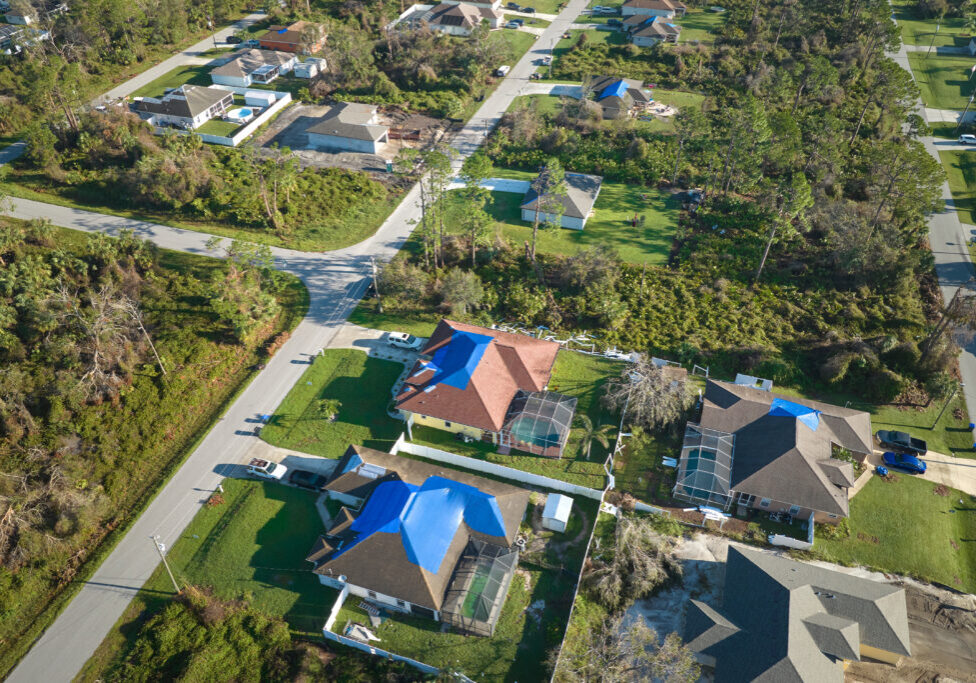Houses with fortified roofs are more likely to sustain hurricane-force winds, and have been hailed as a key part of the solution to the property insurance crisis in coastal regions. The Times-Picayune | Baton Rouge Advocate’s Sam Karlin reports on bills that have been filed for the legislative session that would encourage more fortified roofs:
One bill would set up a dedicated funding stream for a state grant program to give $10,000 each to homeowners that want fortified roofs. Several lawmakers are proposing various tax breaks to homeowners who voluntarily equip their homes with stronger roofs. … State Rep. Aimee Freeman, D-New Orleans, is sponsoring a bill supported by Insurance Commissioner Tim Temple to require that any new roof in coastal parishes be built to the fortified standard. A similar bill was shelved in 2023 amid opposition from homebuilders.
A recent report from the Legislative Auditor found that fortified roofs are helping to bring down the high cost of homeowner’s insurance in Louisiana. Some legislators want to guarantee those savings:
Louisiana modeled its program on Alabama, which requires minimum discounts for upgraded roofs. So far, Louisiana has not done the same. Sen. Royce Duplessis, D-New Orleans, filed a bill to require insurers to offer a 20% minimum discount for a fortified roof. A similar bill failed in the Legislature last year, amid opposition from Temple.
Race and employment in Cancer Alley
Petrochemical plants along Louisiana’s Cancer Alley are mostly located in Black communities, but most of the workers at the facilities are white, according to new research from Tulane Law School and the University of Massachusetts Amherst. While people of color are underrepresented in high-paying jobs in both the chemical manufacturing and petroleum industry nationwide, Louisiana had some of the starkest disparities. The Times-Picayune | Baton Rouge Advocate’s Josie Abugov reports:
The authors of the study, which was published in the journal Ecological Economics on Wednesday, say the research raises questions about the economic justifications of these sectors in local areas. “We always think of pollution versus jobs tradeoff,” said Kimberly Terrell, a research scientist at the Tulane Environmental Law Clinic. “It’s not really a tradeoff when the people who are being impacted aren’t getting any of the benefits and are getting all of the cost.”
Abugov breaks down the disparities:
While over 40% of working-age Louisianans are people of color, only 18.5% of the highest paid workers in the sector were people of color. This trend persisted when looking at Louisiana cities and parishes individually. “People of color had about half their expected share of highest/higher-paying jobs and about three quarters their expected share of lower-paying jobs, but more than their expected share of the lowest-paying jobs,” the study says.
Eliminating local sales tax on groceries
Louisiana’s constitution currently exempts groceries, prescription medicines and home utilities from state sales taxes. House Bill 229 by Rep. Danny McCormick would expand that protection by exempting certain food and beverage items from local sales taxes. Trinity Velazquez of Louisiana First News explains why the policy could create budget crunches for local governments:
HB 229 seeks to standardize the exemption across the state by prohibiting any local tax authority from applying sales tax to these items. The measure would align local tax rules with existing state exemptions and could offer some relief to residents facing rising grocery costs. However, it may also have financial implications for local governments that rely on sales tax revenue.
Local governments rely heavily on revenue from sales taxes to fund schools, parks, libraries and much more. A recent effort by Gov. Jeff Landry to exempt prescription drugs from local sales taxes failed because of concerns that it would cause local governments budget shortfalls.
Work requirements don’t work
Congressional leaders are pushing burdensome work reporting requirements for Medicaid enrollees. While work requirements are effective at increasing hardship through loss of health coverage, they do little to increase employment. A new report from the Urban Institute explains why these requirements would cause many people, even those that are still eligible, to lose their health care:
Though over 9 in 10 expansion adults ages 19 to 55 already work, participate in work-related activities, or could meet exemption criteria, many would lose coverage because of low awareness and understanding of the policy and difficulty using state reporting systems. Here, we describe how these projected coverage losses would be distributed across the 40 expansion states and the District of Columbia (table 1). We find that thousands of expansion adults in each state could lose Medicaid if the patterns observed under prior work requirements apply to all states, likely resulting in greater unmet health care needs, rising medical debt, and worse health outcomes.
Between 116,00 – 132,000 adults in Louisiana would lose their health coverage if Medicaid work requirements are imposed.
Number of the Day
$3,577 – Average tax refund for Louisiana filers in 2022. (Source: IRS via Axios)
